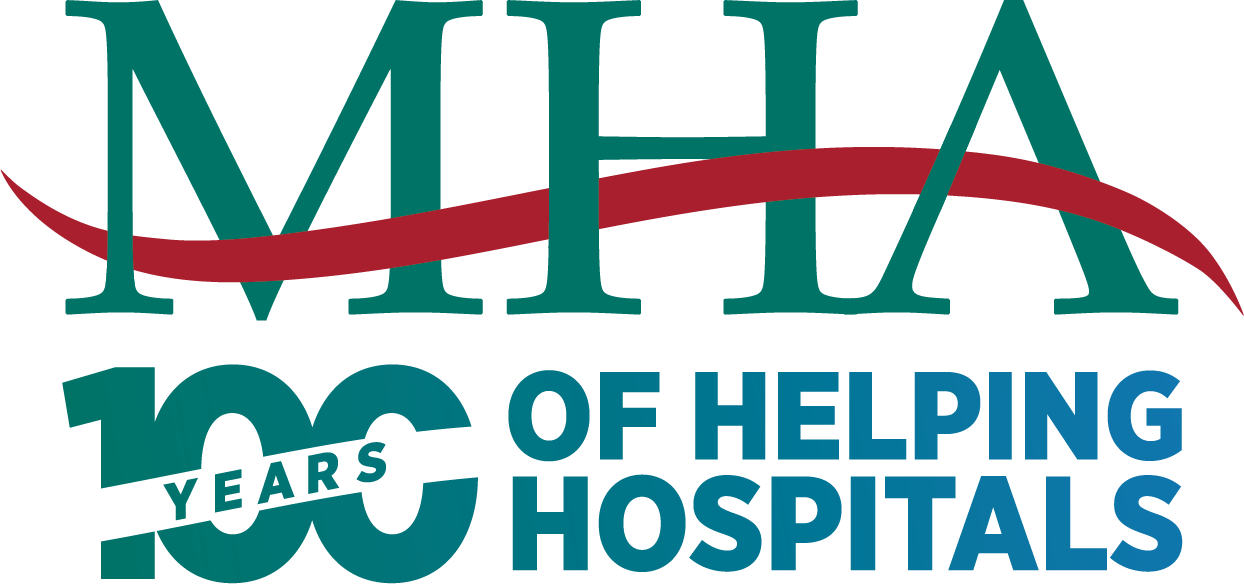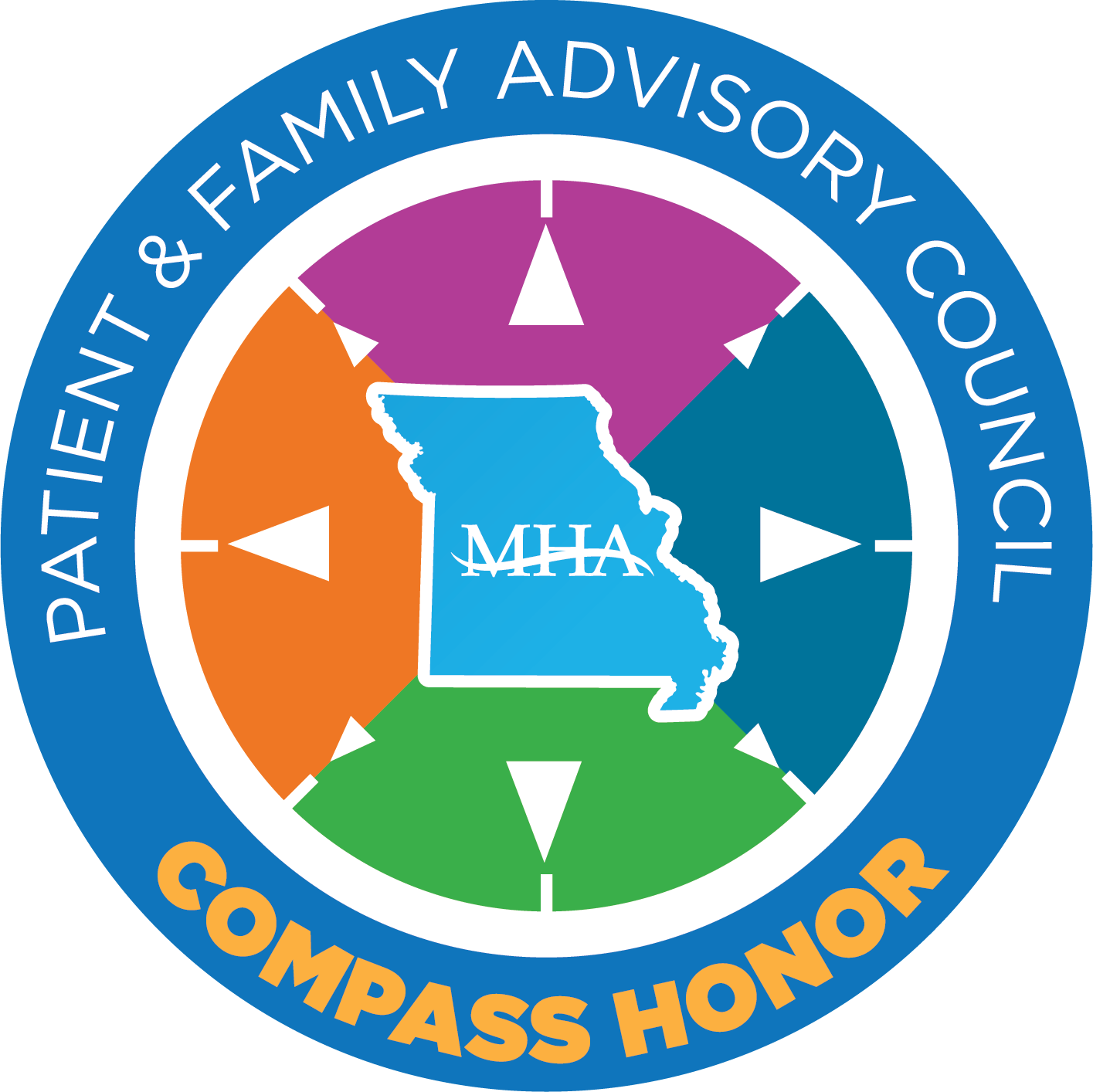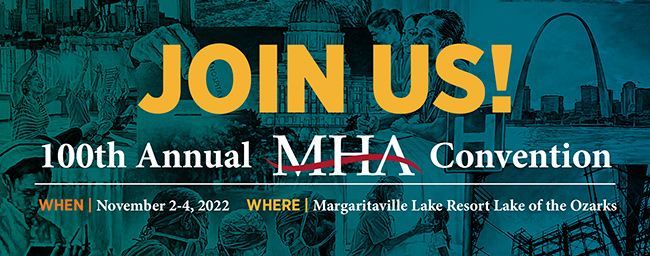
Join Us at MHA’s 100th Annual Convention
Hospitals are people-focused organizations. From the patient on the exam table or in the inpatient bed, the nurse on the floor or lab tech analyzing samples, everyone is there for a reason. The closer we look, the more these individual stories unfold.
This year’s convention will celebrate 100 years of working together on behalf of Missouri’s hospitals. Throughout the year, we’ve shared extraordinary stories of more than 100 members of Missouri’s hospital team. Likely at least one staff member of your hospital or health system has been featured. As an organization dedicated to helping hospitals, we’re just as proud of these team members as you are. Every day, they dedicate themselves to making hard days better, to improving health and to living the “why” that brought them to our doors.
Nov. 2-4 MHA will hold our first in-person convention since 2019 at Margaritaville Lake Resort. This will be a special year. Not only are we celebrating being back together, we are celebrating the reason hospitals came together a century ago to improve health and care in our state.
As a hospital trustee, you provide the focus hospitals need to always remember that a member of the community is at the other end of our work. You help connect to the stories of hope, health and healing that are necessary to serve.
This year’s convention speakers will help us understand the motivation to serve and heal. They will remind us about the value of meeting patients where they are to deliver better care, and relate how moments of personal and organizational crisis can create opportunities to rethink who we are and what we do. Finally, they will help us understand how the past and present shape the future of health care.
We have a great lineup. Former football quarterback Joe Theismann will share how an injury on the field in 1985 fundamentally changed his personal story. Brandon Stanton, creator of “Humans of New York,” will share how his efforts to capture moments of the city’s residents opened a door to better understanding the power of connection in daily life.
The visionary leaders of the early 1900s understood the power of connection and collective action. We hope you will join us for this special 100-year celebration and our first in-person convention since 2019.

MHA Recognizes Inaugural 2022 Compass Honor
MHA Contact: Jessica Stultz
Sponsored by the Statewide Patient and Family Advisory Council, MHA introduced an annual recognition, the Compass Honor, which recognizes a Missouri hospital for outstanding efforts in effectively partnering with their PFAC. Through public recognition, this honor will encourage and inspire hospitals to adopt practices, learn collectively and improve their PFACs.
The “compass” in Compass Honor signifies that with each direction we turn, we find partners in care.
- North symbolizes patients as our true north.
- South symbolizes caregivers and family.
- East symbolizes health care providers.
- West symbolizes support staff.

We are proud to announce that the inaugural 2022 MHA Statewide PFAC Compass Honor is awarded to the PFAC of University Health.
University Health’s PFAC made several contributions to their organization. Below are a few examples.
- communication revisions improved billing practice strategies
- improvement charters now include a “voice of the patient” section
- physicians, residents, medical students, social workers, and nurses are educated on patient advocacy and respect for the patient voice in decision-making
- helped define exceptional patient experience
- installed cultural food equity and an on-site food pantry
- made accommodations to the discharge lounge
- developed a badge to recognize and support family caregivers
- revised its patient and visitor web page
- refined appointment reminder text messages
North Kansas City Hospital and University of Missouri Healthcare also received Honorable Mentions for their advanced efforts.

The Rural Hospital Crisis: Eight Tips for Hospital Trustees
Since 2010, 10 rural hospitals in Missouri have closed or ceased to provide inpatient services, ranking the state eighth highest nationally. Rural hospital closures subsided in 2020 and 2021 due to an influx of federal COVID-19 funds — which masked the problem temporarily — but now 53% of Missouri rural hospitals face increasing and serious financial constraints, threatening operations.
In the 1990s, facing increasing complexities, local leaders often looked for out-of-town “partners” to own or operate their hospital. During this same time, reimbursement declined and costs increased, and by the mid-2000s, the closure of rural hospitals accelerated. Nine of 10 Missouri hospital closures since 2010 were owned or managed by entities with no ties to the community. This is by no means intended to question the motivations or abilities of entities that lack community ties. But, as all of you know, the value of your community hospital to your community is not captured by the hospital’s financial statements. Only community members truly know the hospital’s value to the community. Consequently, local governance tends to enhance the ability to maintain a hospital in your community.
This begs the question, “What can you, as a hospital trustee, do to prevent your hospital from becoming another hospital closure statistic?” Below are eight relatively simple steps.
- Take the time to learn about health care and your hospital. Of particular importance is learning and understanding the financials. You don’t need to be a CPA or have an MBA; you need information and a willingness to ask questions.
- Require transparency from your CEO and other leaders. Trustees have a fiduciary obligation to ensure compliance with complex statutes and regulations.Create a culture in which your hospital leadership is willing to share their successes and failures.
- In conjunction with your hospital CEO, develop a compliance plan that includes reports from hospital advisors, including lawyers, accountants and consultants. This allows you to ask questions on issues involving significant risk for the hospital.
- Do not be pennywise and pound-foolish. Many small hospitals try to avoid using attorneys, accountants and consultants to save money, and they end up paying significantly more to fix the problem, which could have been avoided on the front end.
- Work to “right-size” your hospital to the needs of your community. Every hospital needs an emergency department, but all hospitals must be thoughtful about how to invest to provide the best balance of additional services.
- Consider making changes early. Too often a hospital waits until it is nearing financial calamity before it begins to consider changes that would help sustain it.
- Do your research and strongly consider options before giving up control of your hospital. While affiliating with a nearby larger hospital or independent operator can pay many dividends, no one has a greater interest than you in seeing your hospital survive and thrive.
- Look to the local community for support. In an era where even well-run rural hospitals struggle financially, community leaders need to consider the hospital’s broad economic impact when evaluating the needs and benefits of governmental, business and philanthropic financial support.
Health care (including hospital care) is best when it is local. By taking the steps outlined above, hospital trustees (with CEO buy-in and the help of the local community) can actively work to keep their local hospital alive and thriving.
Article provided by Spencer Fane.
2022 HEALTHPAC Campaign
MHA Contact: Christy Carel
Throughout the legislative session, MHA, along with individual hospitals, worked diligently to champion the most pressing legislation impacting hospitals.
While we are at the end of this year’s HEALTHPAC campaign, there still is time to participate. To meet our goal of $150,000, we encourage you to please make a contribution online.
We appreciate all the individuals associated with our member hospitals who have participated!
Education
Trustee Training: Six Part Virtual Series
Register by Monday, Oct. 10
Session recordings will be available through December 2022.
On-Demand Education
The MHA Health Institute offers cost-effective learning opportunities for both members and nonmembers to help them understand and address emerging issues, learn and share best practices, and comply with legal and regulatory requirements. Learn more.










